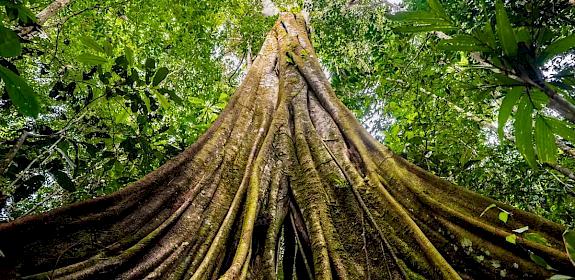New guidelines for verifying timber legality at the border
Putrajaya, Malaysia, October 2017—TRAFFIC joined forces with several government agencies in Malaysia to review a draft of timber trade guidelines that, once finalised, will help Customs officers across the globe verify legal timber passing through border check points.
The Draft Timber Trade Guidelines for the World Customs Organization (WCO) is a project of the International Tropical Timber Organization (ITTO). TRAFFIC is the implementing organization and the Malaysian Timber Industry Board (MTIB) the focal agency for the project.
The guidelines will be pilot tested by the Royal Malaysian Customs Department and submitted to WCO and ITTO for global dissemination once completed.
The two-day review workshop was organized to gather input and recommendations from government bodies and stakeholders to ensure that all areas concerning cross-border timber trade are covered within the guidelines and that they will also effectively assist frontline Customs and enforcement officers in their day-to-day duties.

Workshop participants included the Forestry Department Peninsular Malaysia, Royal Malaysian Customs Department, the Malaysian Timber Industry Board (MTIB), Sarawak Timber Industry Development Corporation (STIDC) and International Tropical Timber Organization (ITTO).
“If this project can be implemented in other countries, it will greatly improve the management of the timber industry. This is not only restricted to Customs but also other government organizations,” said Li Qiang, Systems and Market Analyst of Trade and Industry Division, ITTO. “These guidelines will improve law enforcement efforts to fight illegal logging and trade,” he added.
This will be an opportunity for the guidelines to be emulated by customs agencies elsewhere in the world. The pilot work will run in Malaysia and allow them to take the lead in helping other countries such as China and various African nations.
Timber Trade Programme Leader of TRAFFIC, Chen Hin Keong added,Timber is a valuable renewable natural resource with an estimated annual global trade turnover of more than USD300 billion. However, the largest threat faced by the industry for sustainable forestry management is illegal logging and trade.
“Customs officers play an important role in ensuring that only legally-sourced timber is imported, exported or transited through Malaysia. Despite having many levels of screening however, there is a constant danger that illegally-sourced timber can enter the supply chain and be laundered alongside legally sourced material,” added Chen.
Herman Shah Abdullah from the Enforcement Division, Royal Malaysian Customs (Sarawak), said the guidelines would be very useful for frontline officers as they are not always sufficiently knowledgeable about timber trade in the region. He said the guidelines provide specific information on key trade issues and would help officers work efficiently to combat illegal activity.
Workshop participants recommended Training of Trainer sessions for Malaysian Customs that would help them build a group of timber specialists and ensure knowledge is shared throughout the organization.
“MTIB offers training twice a year for other government organizations. These sessions include how to identify timber species and which are listed in the Convention on International Trade in Endangered Species of Wild Fauna and Flora (CITES),” said Haji Zulkepli Abd Rani, Director of MTIB’s Enforcement and Licensing Department.
TRAFFIC will now work on improving the guidelines, taking into consideration the constructive comments and input of the workshop participants. The final print-ready version is expected to be submitted to ITTO and WCO by the end of the year.





